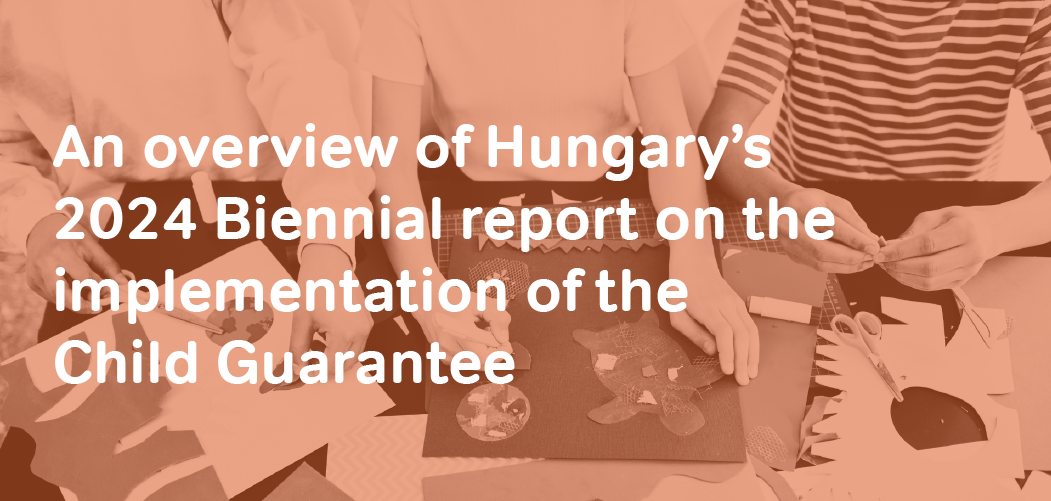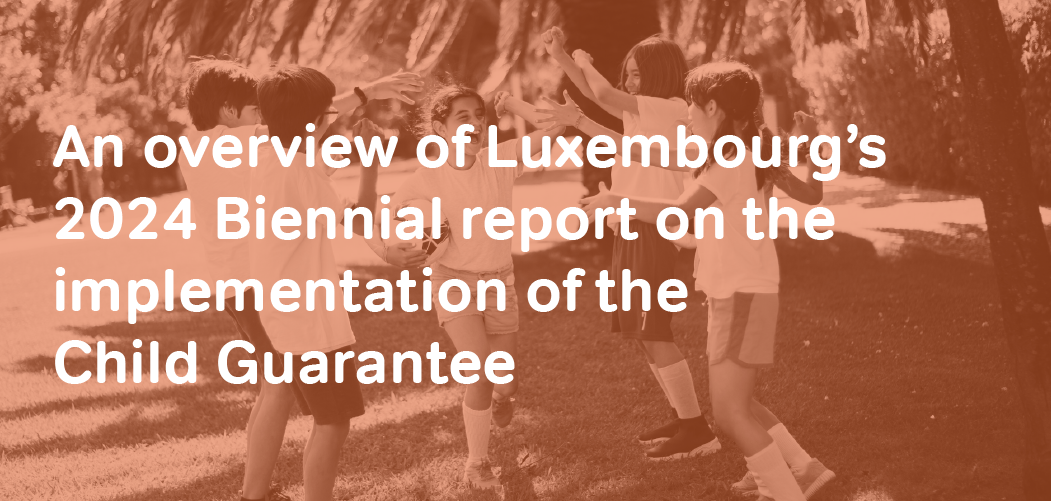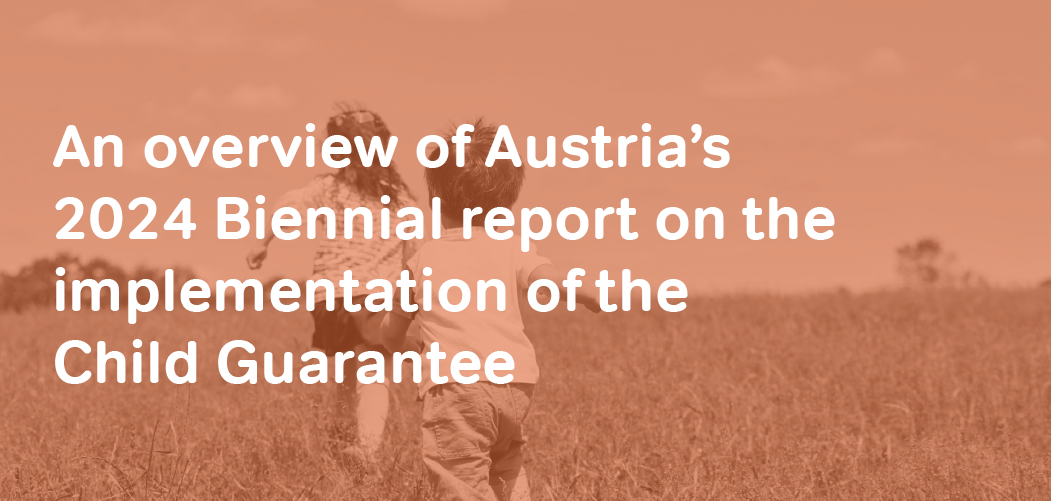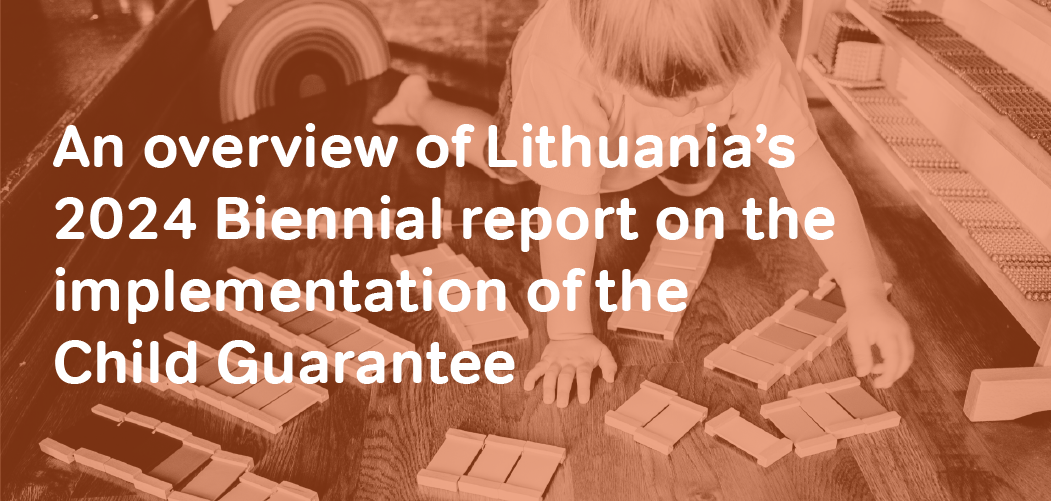Hungary's 2024 Biennial report on the implementation of the Child Guarantee – an overview
Three years after the adoption of the European Child Guarantee, EU Member States are releasing the first report on its implementation. The reports offer an overview of the context, target groups, and services established to execute the European Child Guarantee’s National Action Plans. Additionally, they include sections covering indicators, financing details, and insights and conclusions gleaned from the implementation process.
The Hungarian Government submitted its 2023 Biennial report on the implementation of the Child Guarantee.
The report focuses on:
- Early childhood education and care: Efforts to promote access to services for children at risk of poverty and in deprived areas continue. However, digital initiatives such as OkosÓvoda 2.0 and the Kortárs Netmentor Programme were not launched in 2023 due to restructuring and funding gaps.
- Education and school-based activities: In the 2021/22 school year, 120,000 digital notebooks were distributed, with an additional 140,000 distributed in 2023. Five pilot schools were selected for reorganisation during 2023/2024 school year, aiming to improve educational opportunities, particularly for disadvantaged students. An Early Warning System has been introduced to identify pupils at risk of dropping out and to provide personalised support to students.
- Healthy meal provision: Free or subsidised meals are provided on each school day in kindergartens, including during school holidays for disadvantaged children.
- Healthcare: A new draft law has been proposed to establish a national network of health promotion offices. Programmes to reduce substance abuse are ongoing. However, due to delays in adopting horizontal eligibility criteria, the launch of an EU-funded programme aimed at providing basic mental health training for teachers remains uncertain.
- Adequate housing: Programmes target children aged 0-14 living in the most disadvantaged communities, supporting the production and use of renewable energy in these areas and supporting the improvement of housing conditions.
- Alternative care: Support is provided to foster families through a centralised foster parent training programme.
Download the overview of Hungary 2023 Biennial report on the implementation of the Child Guarantee
Check out the rest of the 2024 Biennial reports on the implementation of the Child Guarantee!
Eurochild and its members will continue to call on Member States to release their biennial reports and work to ensure the Child Guarantee National Action Plans help end child poverty.
This summary provides key highlights from the Biennial report on the Child Guarantee implementation in Hungary. It is not exhaustive or evaluative.





